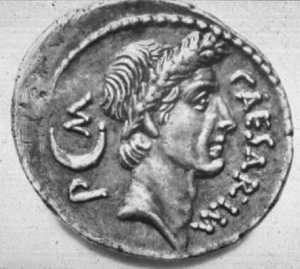
Situation 2: Should We Pay Taxes or Not?
(Matthew 22:15-22, Mark 12:18-27, Luke 20:30-38)
Who questioned him: Pharisees and Herodians (“spies”)
What they asked: whether they should pay taxes to Caesar
Why this was significant: The Jews resented being under Roman rule because they believed, as God’s chosen people, they should have their own nation. If Jesus was claiming to be the Christ, the King (on a mission to set up his own kingdom), then what would he say about them paying taxes to the government currently ruling them?
Jesus’ response: He showed them a coin and asked them whose likeness and inscription was on it. Then he said to give to Caesar that which is Caesar’s and to God that which is God’s.
Bottom Line: Jesus saw their hearts and their hypocrisy – they weren’t interested in really knowing whether to pay taxes. They were only looking to trap him. Instead of deflecting the answer as he did earlier, he answered it in a way that silenced them but also did not give them the full story. He knew their hearts wouldn’t accept his divine kingship anyway.
What We Can Learn From Jesus’ Response:
Beware of Flattery:
Before the Pharisees and Herodians asked Jesus the question, they “buttered him up” by saying that he “truly teaches the way of God.” They were hoping to appeal to him and deceive him into thinking they were seeking truth. But Jesus saw through the artificial flattery.
In the same way, we need to be on guard for people who attempt to lure us into a trap by pretending to seek truth. We Christians can be a sympathetic bunch when we feel someone has a genuine interest in hearing about Jesus. We must be in tune with the Holy Spirit, who will enable us to see past any false flattery.
Be Aware of the Audience:
Jesus also did not entirely avoid this question like he did the last. Instead he answered the question in a way that made those hearing him “marvel.” I believe he knew that there were people present who were seeking truth. By answering in this way, he silenced those who wanted to trap him but also appealed to the hearts of those who were truly seeking.
In the same way, we should be aware that even within a challenge, there may be those present who are seeking truth. We need to be sensitive to those people and their needs and not mentally lump them in with the accusers.
Remember Whose Kingdom We are Building
Jesus also was pointing out, in a way that wasn’t evident at the time, that his kingdom was not an earthly kingdom. Caesar was no threat to his kingdom; it was the kingdom of God he was seeking to build.
In the same way, we can get so caught up in our own governmental complaints that we miss that the kingdom we are to be building is an eternal one. I’m not proposing that we shouldn’t be active in governmental and social affairs. But I am arguing that sometimes we as Christians tend to care more about the “issues” than we do about our true purpose: sharing the message of the salvation of Jesus Christ. Jesus built his kingdom by ministering to one soul at a time, one group at a time. He did this by meeting immediate needs, making the people aware of their sinfulness and need of a Savior, and then ultimately meeting that need. He kept “first things first” and didn’t get sidetracked with peripheral issues.
